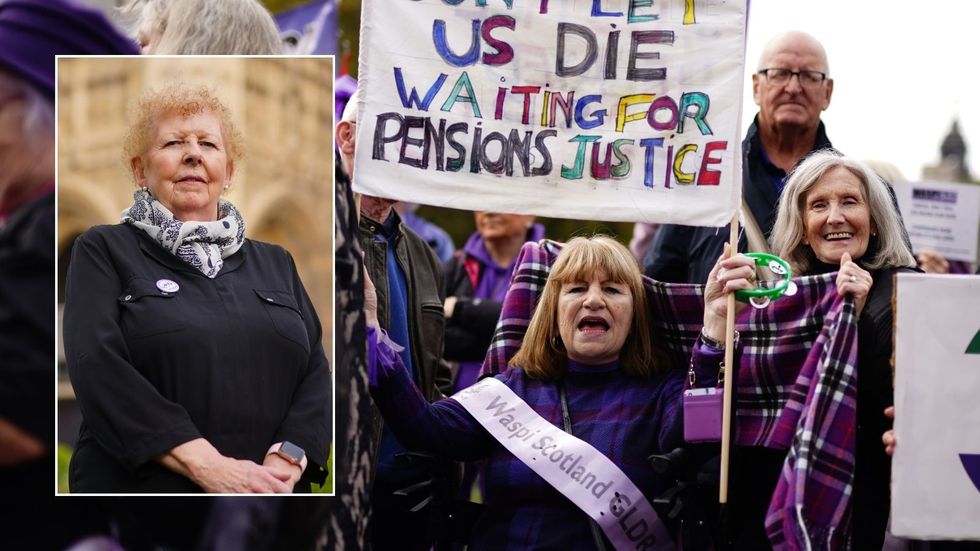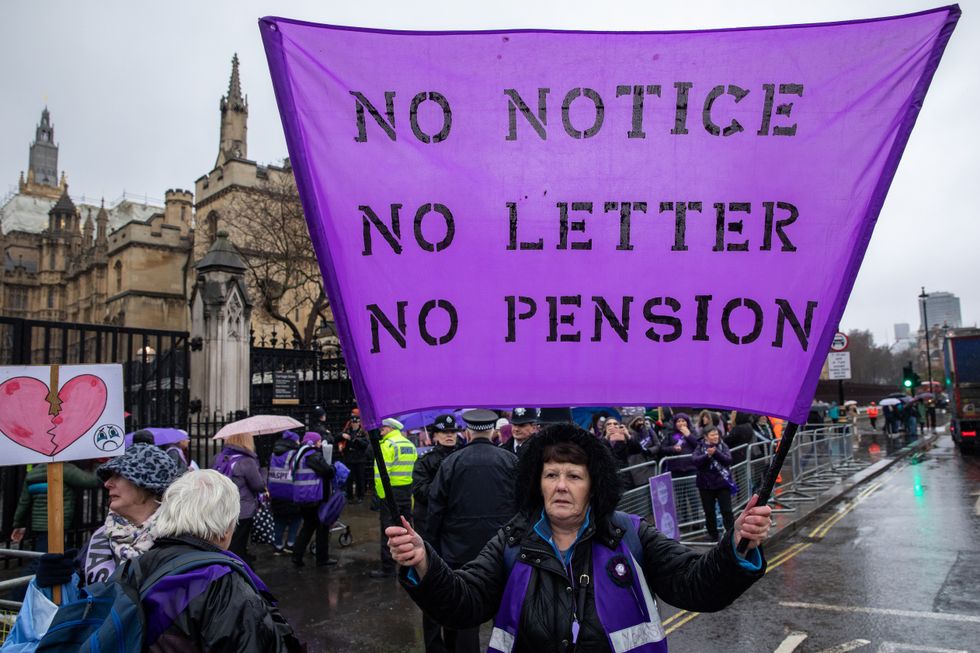Watch as Britons react to triple lock pension warning
GB NEWS
Waspi campaigners have slammed the Government for not putting forward a compensation scheme for women impacted by planned increases to the state pension age
Don't Miss
Most Read
Trending on GB News
Activists from the Women Against State Pension Inequality (Waspi) campaign have expressed anger and betrayal after the Government rejected calls to compensate women affected by historic state pension age changes.
The decision, announced in December 2024, came despite findings of "maladministration" from the Department for Work and Pensions (DWP) in how it communicated said changes by the Parliamentary and Health Service Ombudsman (PHSO).
Speaking to the Work and Pensions Committee, Waspi communications director Debbie de Spon said: "Waspi women are upset and angry and they feel let down and they feel betrayed and they don't understand how it's possible that findings of maladministration can have been shown but it doesn't lead to redress for them."
Following the ombudsman's report, the Government acknowledged and apologised for delays in communicating the changes to 1950s-born women but maintains that a compensation scheme can not be justified.
Previously, the PHSO suggested compensation between £1,000 and £2,950 for each affected woman. However, the Government ruled out a blanket compensation scheme that could cost taxpayers up to £10.5billion.
Do you have a money story you’d like to share? Get in touch by emailing money@gbnews.uk.

Waspi women are speaking out against the Government's decision-making
PA
Angela Madden, chairwoman of Waspi, told MPs they were "shocked" by the limited compensation recommended by the ombudsman. "The compensation recommended by them is a very small sum because of that, you know, £3,000 maximum for anyone suffering from those injustices," she said.
When asked if the Government should have kept options open for future compensation when finances might allow, Madden responded: "Absolutely, yes, absolutely. You know, perhaps this year it might have been difficult for them to make that decision. But it shouldn't be un-made totally."
Madden told MPs that many women had carefully planned for retirement at age 60, only to have their plans disrupted.
"We did plan for our retirement, mostly that's what we hear from our members, we planned for our retirement, but we expected that retirement to start at 60," she said.
The Waspi chairwoman highlighted the challenges faced by those who had already left work in their 50s. She explained that returning to employment proved extremely difficult due to age discrimination.
 Waspi women are also outraged over the Government's perceived treatment of pensioners GETTY
Waspi women are also outraged over the Government's perceived treatment of pensioners GETTY "Because, I believe, certainly for us, there was discrimination in the workplace and I believe discrimination, age discrimination, still exists in the workplace," Madden told the committee.
Many affected women were forced to take poorly paid work and use their savings to survive, she added. The impact on women's lives has been severe, with some forced into unexpected living arrangements.
"We've heard of some women house-sharing with strangers, now, we did that when we were students, we certainly didn't expect to do it at this stage of our lives," Madden revealed to the committee and emphasised how the changes had left many women financially vulnerable.
"Women have been impoverished by the way we've been treated," she said.
"The ombudsman suggested that we were being compensated for stress, lack of notice, you know, the anxiety, the shock, all the adjustments we had to make, some that we couldn't make," Madden explained.
Karl Banister, deputy ombudsman of PHSO, said of the Government's response: "We are pleased that the Government has said yes, there was maladministration."
LATEST DEVELOPMENTS:

Women born in the 1950s have lost out on compensation
GETTYHe welcomed the Government's apology but expressed concerns about how some findings were interpreted.
"It's not helpful in our view that the Government has then sort of undermined some of that, in some of the ways it's responded," Banister said.
When asked if he was surprised by the lack of financial compensation, Banister responded: "I suppose not, really, because it was a significant development, a significant move forward to accept maladministration, full stop, and to apologise."
The Government has previously cited research showing that 90 per cent of 1950s-born women were aware of state pension age changes by 2006. However, the deputy ombudsman questioned this justification for denying compensation.
"I think it's not ideal. Because I think it's clear from our report that there are various ways of looking at awareness," Banister told MPs.
He emphasised that the PHSO's role was not to dictate policy but to hold the Government to its own standards.








